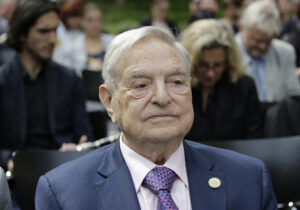Was this the election that kickstarted the European Union’s renaissance? Seemingly against the odds, the liberal-centrist pro-EU coalition led by former European Union President Donald Tusk emerged victorious in Sunday’s elections in Poland, stopping the national-conservative Law and Justice (PiS) party from securing a third term in power, and putting an end to its eight-year rule. Most EU leaders cheered the results: the return to power of the militant anti-Brexiteer brings Poland, the most powerful country of the Eastern flank, firmly back into the fold. “Welcome back, Donald”, crowed Politico, barely containing its glee.
It’s an outcome that will have momentous consequences — not just for Poland but for Europe as a whole. Since the PiS came to power in 2015, Poland’s relations with the EU have grown increasingly strained. Over the years, the European Commission has systematically charged Poland with failing to uphold the “rule of law”, as defined by Brussels — for threatening media freedom and judicial independence, not doing enough to tackle systemic corruption, violating LGBT and minority rights, and thwarting the bloc’s immigration policies.
The PiS government, on the other hand, has always contended that these were matters of national sovereignty over which the EU had no say, locking horns with Brussels over what is arguably its most important article of faith: the primacy of EU law over national law.
When Brussels claimed that a new judicial disciplinary body created in 2017 — composed of jurists appointed by Parliament to hear complaints against judges facing misconduct allegations — violated EU law and should be revoked, the Polish government refused to comply. It claimed the demand represented an unacceptable infringement on the country’s national sovereignty. The Polish Constitutional Tribunal upheld the Government’s decision, insisting that national law enjoyed primacy over EU law.
In the eyes of EU officials and pro-EU elites, this, even more than culture-war issues, is what made Poland, along with Viktor Orbán’s Hungary, an existential threat. It was, after all, a serious blow to one of the crucial pillars of the bloc’s empire-building project: integration by law — the stealthy hollowing out of national constitutional and legal systems, through which the EU has slowly aligned policies across the bloc regardless of electoral outcomes. As Luxembourg’s foreign minister, Jean Asselborn, put it at the time: “If this principle is broken, Europe as we know it, as it has been built with the Rome treaties, will cease to exist.”
And this wasn’t all. The PiS also clashed with Brussels and other countries over its opposition to the extension of qualified majority voting, in place of unanimity, to new areas such as foreign policy — seen by integrationists as a way of overcoming the ability of individual countries to block EU initiatives, as well as a precondition for further enlargement.
Yet what made the PiS hated in Brussels is also what led it to become something of a role model in the eyes of other Eurosceptic and national-conservative parties across the continent. The PiS even actively sought to lead a coalition of Right-populist political parties across the bloc. In 2021, the Polish government hosted a meeting of numerous leaders of these groups. This February, after meeting in Warsaw, Prime Minister Mateusz Morawiecki and Italian Prime Minister Giorgia Meloni proclaimed their determination to push back against a “centralist vision” of Europe.
Amid such strong rhetoric, what went wrong? For a long time, the PiS’s grip on the country seemed unshakeable, with the party persistently enjoying strong support in the polls. The outbreak of the war in Ukraine seemed poised to strengthen the ruling party even further, not least because it dramatically shifted Europe’s geopolitical balance of power from the West to the East — first and foremost to Poland.
Almost overnight, the country, which has always been staunchly pro-US and pro-Nato, and which already had one of the most formidable armies in Europe before the conflict, went from being the EU’s bête noire to being the tip of its spear in Ukraine and Nato’s de facto logistical hub. “Poland has become our most important partner in continental Europe”, a senior US Army official in Europe claimed in November. All of a sudden, in the eyes of Brussels — and especially Washington — Poland was no longer a threat to democracy but, purportedly, a crucial ally in the struggle against autocracy.
These developments strongly emboldened the country’s geopolitical aspirations: as the biggest and richest nation in Central and Eastern Europe (and the sixth-largest economy in the EU), it has long aspired to a leading role in the central and north-eastern quadrant, capable of counterbalancing both Russia and the Franco-German axis. The conflict gave this project a huge impetus.
Indeed, it seemed inevitable that the PiS would benefit from this — but events took a different turn. The fortunes of the PiS were already waning before the war, due to criticisms over its handling of the pandemic, a hugely controversial ruling by Poland’s constitutional tribunal (stating that abortions as a result of foetal defects were unconstitutional), and rising tensions within the governing camp.
The war in Ukraine further complicated matters for the Government: not only did it lead to sky-high inflation, but as a result of the so-called “solidarity routes” set up by the EU, cheap Ukrainian grain flooded the local market, undercutting prices and angering farmers, among whom the PiS had traditionally enjoyed strong support. Confederation, a Right-wing party created in 2018, weaponised the growing frustration among sectors of Polish society with the country’s support for Ukraine, which included taking in at least 2 million refugees. The Government responded by introducing a unilateral ban on Ukrainian grain — and by dramatically withdrawing military support for Ukraine. But it did little to reverse the trend.
Meanwhile, the real beneficiary of the ruling party’s troubles was its arch-enemy: Donald Tusk. A pro-market, pro-EU liberal-centrist, he was the country’s prime minister from 2007 to 2014, before going on to become the EU’s president and then the president of the centre-right European People’s Party until last year. Throughout his career, he has been a devout servant of the EU’s integrationist, supranationalist project: in 2015, when Greek Left-wing leader Alexis Tsipras clashed with the EU over austerity, Tusk played a crucial role in crushing the Greek government’s revolt and pressuring it to accept a new bailout conditional upon a new round of austerity measures. Then, in 2016, he bitterly opposed Brexit, saying that there was “a special place in hell” for Brexiteers.
It was unsurprising, then, that he became the sworn enemy of the PiS — which has always accused him of being responsible for the 2010 plane crash that killed Polish President and PiS co-founder Lech Kaczyński — and in particular of prime minister Morawiecki. In 2021, Tusk decided to make a political comeback with the launch of Civic Platform. Since then, he has skilfully exploited the ruling party’s growing problems, especially the massive backlash against the new abortion law, leading several mass demonstrations against the Government in June and then again two weeks ago.
His victory represents a seismic change in Poland’s political landscape. Tusk has pledged to resolve the country’s rule-of-law disputes with the EU — which essentially means bringing Poland back under the “soft tyranny” of the EU’s legislation, the so-called acquis communautaire, in exchange for which the EU has promised to unlock €35 billion in post-pandemic funds. He has also pledged to offer greater protection for LGBT and women’s rights, as well as renormalising relations with Ukraine. On the economic front, Tusk will likely pursue a pro-business agenda, probably reversing some of the PiS’s generous welfare policies, while on other issues, such as immigration, he will probably maintain the status quo, even though this is unlikely to defuse the country’s hyper-polarised political landscape.
But the ramifications of Tusk’s victory extend well beyond Poland. The most obvious winner is the EU. Not only will it weaken the Right-populist and Eurosceptic front, but it will also give new lifeblood to the EU’s integrationist project. Tusk’s Civic Coalition has, for instance, pledged to “return to the decision-making group in the EU institutions”, and he has often endorsed the use of qualified majority voting in the past. A Civic Coalition-led government is therefore likely to widen the window towards the bloc’s further enlargement — including Ukraine.
Yet there is also a less obvious winner of Sunday’s election: Germany. The PiS was viscerally anti-German. Last August, for example, Polish foreign minister Zbigniew Rau likened “Russian imperialism” to “imperial practices within the EU”, particularly in Germany; the Polish deputy PM had previously accused Germany of trying to turn the EU into a federal “German fourth Reich”.
Under Tusk, by contrast, Poland is less likely to compete with Germany for leadership of Nato, making it easier for Germany to enact its plan of “becoming the guarantor of European security” — in other words, managing Nato on behalf of Washington, in exchange for being allowed to re-establish a position of economic leadership within the EU. To further drive the message home, a member of the German parliament’s EU committee wrote on Sunday: “Within the Nato framework, the message should be: Germany feels responsible for Poland’s security!”
There is, however, just one problem for pro-EU elites in Germany and elsewhere: while the Right-populist threat might be declining in the East, as Poland’s election attests, it is growing in the West — especially in Germany — largely due to the EU’s prioritisation of US-driven foreign policy diktats over the economic interests of member states. Attempts to use the Polish results to justify a new integrationist power grab by the EU will only embolden anti-EU forces. Brussels might be celebrating for now — but after the party, comes the hangover.
Disclaimer
Some of the posts we share are controversial and we do not necessarily agree with them in the whole extend. Sometimes we agree with the content or part of it but we do not agree with the narration or language. Nevertheless we find them somehow interesting, valuable and/or informative or we share them, because we strongly believe in freedom of speech, free press and journalism. We strongly encourage you to have a critical approach to all the content, do your own research and analysis to build your own opinion.
We would be glad to have your feedback.
Source: UnHerd Read the original article here: https://unherd.com/



